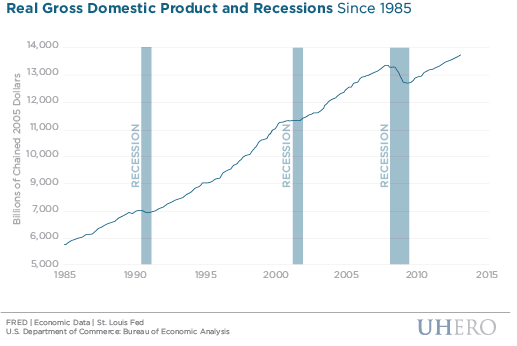By Kimberly Burnett
While the U.S. economy has been out of the last recession since the summer of 2009, a new poll found that a majority of people (54%) thinks the country is still there. How are these things measured, and who decides when a recession starts and ends?
The National Bureau of Economic Research (NBER) Business Cycle Dating Committee was created in 1978 to formally determine and announce peaks and troughs in economic activity. While the popular press often states the definition of a recession as two consecutive quarters of decline in real GDP, the Dating Committee’s procedure for identifying recessions differs in several ways. The committee uses a range of economic indicators in addition to GDP, such as employment and personal income, to determine periods of expansion and contraction, and pays particular attention to monthly indicators.
Aside from the duration, the depth of the decline in economic activity is also an important factor in recessions. The Committee waits until the existence of a peak or trough is not in doubt, and until it feels confident about assigning an accurate date to those limits. It then pronounces the time between the peak and trough a recession. For example in the last recession, the Dating Committee’s determination of the December 2007 peak and the June 2009 trough dates occurred 11 months and 15 months later, respectively.






